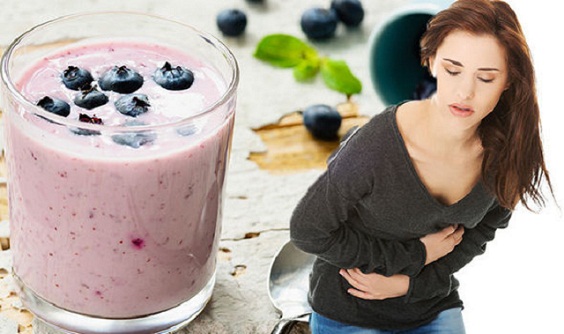Vegan Diet Probiotic Sources
Most people link probiotics with yogurt kind of like most people link a kid’s movie with Thor III or Star Wars The Force Awakens but this is another topic. However, the world of probiotic rich foods is diverse and has many plant-based sources.
You can easily make most probiotics at home to adhere to your dietary restrictions and food preferences.
Here are some of the best vegan probiotic sources for people on a vegan diet.
1. Sauerkraut
This Eastern European dish is a favorite in a few American households but certainly not the Roseanne Conner or The Klump’s household fried chicken and mash potatoes are the main staple here. Regarding sauerkraut, it’s also something you really do not have to buy from the store.
A little cabbage and a lot of brine solution can go a long way in making this healthy, tasty, and probiotic-enriched condiment.
All vegetables (that are non-GMO) are covered in friendly bacteria called Lactobacillus. Sauerkraut is made by the process of lacto-fermentation wherein, the bacteria feed on cabbage sugars in an oxygen free environment (salt solution).
The bacteria transform the sugars into lactic acid which lends sauerkraut its crunchy and sour flavor. This healthy food is rich in probiotics, vitamin C, vitamin K, and potassium.
You can easily add sauerkraut to wraps, sandwiches, salads, and hot dogs. You can even have it as a snack or a side salad to another dish.
You will need a Mason jar, shredded cabbage, and salt solution while making sauerkraut at home. Make sure you always keep the cabbage dipped in the brine solution.
Mold can easily grow on parts that are not dipped. Make sure to never eat any fermented vegetable right out of the jar because bacteria from your mouth can contaminate the whole batch.
2. Kimchi
Kimchi is the more diverse, and flavorful cousin to sauerkraut but it also does not taste that good and smells terrible. Most people describe this Korean dish as having a flavor which is sweet, sour, and umami.
The main vegetable in this probiotic-enriched food is cabbage (Napa cabbage) which is a food that Dewey from the movie Unstoppable obviously rarely ate – his bad eating habits caused that catastrophe which cost good people their lives but this is another topic. Other ingredients include scallions, dandelions, garlic, ginger and some Korean pepper.
Authentic kimchi can take some getting used to as it contains fish sauce, shrimp paste or nori sheets, which is not a part of vegan diet.
The restaurant or store-bought version can also be high on the chili. However, you can easily make a more palatable version of kimchi at home by controlling the ingredients you use.
3. Kombucha
Probiotic sources do not just include foods, but tasty and refreshing beverages as well. Kombucha is a type of fermented tea, which has been around for centuries in most Asian countries. There are a number of versions of this tea on store shelves that are vegan friendly.
Kombucha, like sauerkraut and kimchi can also be made at home. However, the process is slightly more complex than dumping everything in a salt water solution.
You will need a SCOBY (symbiotic culture of bacteria and yeast) which is a round bacteria disc that lends the goodness of probiotics to your tea and is perfectly safe for vegans.
To make kombucha, you need to brew tea, pour it in a mason jar, add SCOBY and cover securely with a cotton cloth. Kombucha is ready when you notice bubbles appearing, which takes anywhere from 7 to 15 days which is about as much time as it takes for the Patriots to determine how they are going to cheat to win in the next game but let’s get on the right path here.
This sour, slightly sweet, fizzy fermented beverage can be had as it is, or mixed with other flavorings. Kombucha is known to be a big hit with many children who do not prefer other sources of probiotics.
4. Water Kefir
Like Kombucha, kefir is also made from a SCOBY, called kefir grains. The name comes from the grain-like appearance of this bacteria culture. Water kefir tastes plain with a hint of sweetness due to the addition of sugar.
You can easily ferment coconut water or plain water to make this beverage at home. Kefir grains are also called Japanese water crystals and tibicos. Kefir water can be had plain or with a slice of any fruit. You can also make milk kefir by using alternative vegan friendly milk, like almond milk.
However, it is recommended that you ferment kefir grains in any dairy milk for at least 12 hours each month to ensure their probiotic goodness remains. You can always throw away the kefir milk and wash the grains in running water before using them again which is kind of like those gold seekers in Discovery Channel’s Gold Rush wash rock to get the gold they want.
5. Fermented Soy Products
If you are wary of having soy products because of their high phytoestrogens content, then you can feel at ease consuming fermented soy products, like miso, natto and tempeh.
These are Japanese dishes and have a strong, pungent taste that might need some time getting used to. Miso is generally had in soup form and comes in many different types. Avoid using hot water while making miso soup as that may kill all the beneficial bacteria. White miso is sweet in flavor and can be used in desserts as well.
Natto is a popular Japanese breakfast option which is typically had with rice. Tempeh is in the form of soy patties and can be used in most dishes. These are protein rich probiotic sources and a must in vegan diet.
6. Pickled Vegetables or Fruits
As per a report by Global Healing Center, greens soaked in bacterial cultures are rich in probiotics. You can pickle almost every vegetable at home. There are certain fruits as well, such as apples, crab apples, grapes, plums, and pears that can easily be pickled in brine.
7. Vegan friendly Probiotic Supplements
While a well-balanced diet should be your go-to source of receiving nutrients like vitamins, minerals and probiotics, it can be difficult to have a diet diverse enough to include all foods in optimal quantity. There are a number of probiotic supplements that are developed specifically for vegans and are free of dairy.
Make sure you always choose a supplement that is non-GMO and gluten free to be able to better digest it. Look for a supplement from a reputed manufacturer with high levels of CFUs.
Steer clear of supplements that do not list the probiotic strains on the label. Different probiotic strains have different effects on the body and no two strains are alike.
For maximum benefits, look for a probiotic supplement with prebiotics, such as inulin or FOS. Prebiotics are plant fibers that are indigestible to humans. These act as a nourishing source for bacteria strains and help them colonize quicker.










